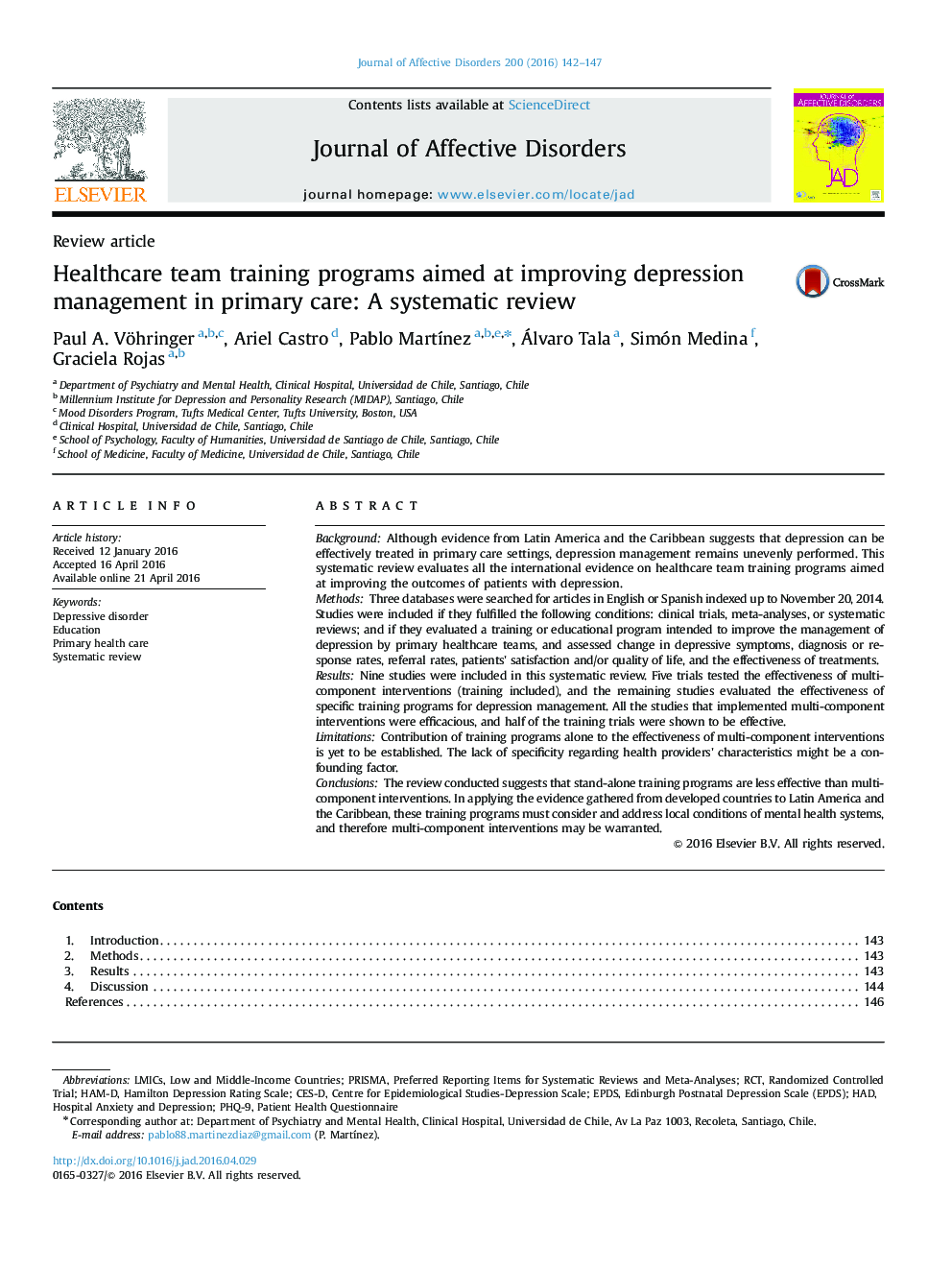| کد مقاله | کد نشریه | سال انتشار | مقاله انگلیسی | نسخه تمام متن |
|---|---|---|---|---|
| 6230079 | 1608125 | 2016 | 6 صفحه PDF | دانلود رایگان |
- Studies tested standalone depression training programs or multi-component interventions.
- A high proportion of reviewed trials probed to be efficacious.
- Standalone trials were less effective than multi-component interventions for depression.
- In multi-component interventions, contribution of training program alone is uncertain.
- Multi-component interventions may be warranted to address health services characteristics.
BackgroundAlthough evidence from Latin America and the Caribbean suggests that depression can be effectively treated in primary care settings, depression management remains unevenly performed. This systematic review evaluates all the international evidence on healthcare team training programs aimed at improving the outcomes of patients with depression.MethodsThree databases were searched for articles in English or Spanish indexed up to November 20, 2014. Studies were included if they fulfilled the following conditions: clinical trials, meta-analyses, or systematic reviews; and if they evaluated a training or educational program intended to improve the management of depression by primary healthcare teams, and assessed change in depressive symptoms, diagnosis or response rates, referral rates, patients' satisfaction and/or quality of life, and the effectiveness of treatments.ResultsNine studies were included in this systematic review. Five trials tested the effectiveness of multi-component interventions (training included), and the remaining studies evaluated the effectiveness of specific training programs for depression management. All the studies that implemented multi-component interventions were efficacious, and half of the training trials were shown to be effective.LimitationsContribution of training programs alone to the effectiveness of multi-component interventions is yet to be established. The lack of specificity regarding health providers' characteristics might be a confounding factor.ConclusionsThe review conducted suggests that stand-alone training programs are less effective than multi-component interventions. In applying the evidence gathered from developed countries to Latin America and the Caribbean, these training programs must consider and address local conditions of mental health systems, and therefore multi-component interventions may be warranted.
Journal: Journal of Affective Disorders - Volume 200, August 2016, Pages 142-147
